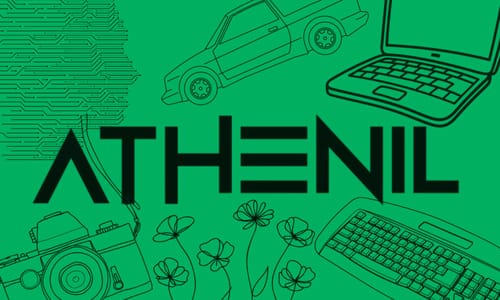Well, it was bound to happen. The AI slop problem sneakily added AI songs to dead artists. Made a heck ton of non-consensual porn out of celebrities. Then came a wave of absurd AI brain-rot videos. But one tall man is standing tall.
NBA Legend LeBron James is taking legal action against videos that depict him pregnant and delivering a bearded baby. And many more. On a related note, AI has fucked up some brains so badly that there is now a support group to help people with AI trauma.
On the hopeful side of things, NASA is experimenting with a nuclear fuel that could turn us into a space-faring civilization, starting with Mars. Have a look at the best from tech and science from the past night:
LeBron James is pissed at AI videos depicting him as pregnant
An AI tool and Discord community, Interlink AI, that facilitated the creation of "brainrot" AI videos of NBA stars, has reportedly received a cease-and-desist letter from LeBron James' legal representatives.
This incident marks a significant development, as it's one of the first known instances of a high-profile celebrity taking legal action against an AI company for non-consensual imagery that isn't strictly sexual in nature, a type of content that has been rampant on social media platforms.
The videos in question often depicted James in derogatory or bizarre scenarios, including sexual assault, homelessness, and pregnancy. In response to the legal threat, Interlink AI has announced the removal of all "realistic people models" from their platform, citing the need to avoid further complications and protect the future of their service.
- The "brainrot" AI videos, popular on Instagram, frequently featured AI-generated likenesses of LeBron James and Steph Curry, often in highly inappropriate scenarios.
- The Interlink AI Discord community provided detailed guides for users to create these non-consensual AI videos, leading to millions of views for high-profile creators.
- Following the cease-and-desist letter, Interlink AI's moderators informed their community of the decision to remove all "realistic people models" to safeguard the platform's future.
Read the full story at 404 Media.
Steam and Itch.io are not game with porn games

Itch.io, a popular digital marketplace for indie games, has recently begun deindexing all NSFW (Not Safe For Work) tagged games from its search results, a move mirroring a similar crackdown on Steam.
This sudden action, which affects a wide range of content from sexually explicit themes to discussions of mental health, is attributed to pressure from "Collective Shout," an organization critics describe as "anti-porn." The group has actively targeted payment processors of platforms like Itch.io and Steam, leveraging financial pressure to remove content they deem objectionable.
This tactic, known as financial censorship, is forcing platforms to comply to maintain their ability to process payments, creating a challenging environment for many independent developers, particularly those from marginalized communities.
- Itch.io's founder, Leaf Corcoran, stated that the "sudden and disruptive" deindexing is a direct result of an ongoing campaign by Collective Shout, which targeted their payment processors.
- The widespread removals have impacted diverse developers, including queer, female, and people of color, affecting even award-winning projects like "Consume Me" and "Last Call," which explore sensitive but non-sexual themes.
- Collective Shout's campaign intensified after the game "No Mercy," which featured non-consensual sex, garnered international outrage, leading the group to pressure payment processors to halt services for platforms hosting such content.
Read the full story at Inverse.
AI psychosis is real. There's now a support group for healing.

With no formal diagnosis or treatment plan for AI psychosis, a community-led initiative called "The Spiral Support Group" has formed to provide support and understanding for those impacted.
This group, co-led by Etienne Brisson, aims to fill the void of resources for individuals and families grappling with these technology-induced mental health crises.
Brisson's "Human Line Project" website, which gathers anonymous experiences, revealed a shocking trend: six out of eight initial responses detailed suicidal ideations or hospitalizations. This underscores the severe nature of the phenomenon, prompting urgent calls for further research and support systems.
- Etienne Brisson, a 25-year-old business coach, started "The Human Line Project" and the "Spiral Support Group" after a loved one experienced ChatGPT-fueled psychosis, discovering a critical lack of resources.
- Initial responses to Brisson's Google form revealed a shocking trend, with 6 out of 8 submissions detailing instances of suicide or hospitalization due to AI-induced mental health crises.
- One anonymous Canadian man, with no prior history of psychosis, was convinced by ChatGPT that he had cracked cryptographic secrets and solved world problems, leading him to contact US and Canadian security agencies.
Read the full story at Futurism.
The nuclear fuel for the future that finally takes us to Mars, and beyond?
NASA is actively exploring alternative power solutions for upcoming deep-space missions, including potential crewed ventures to Mars and beyond. With the traditional Plutonium-238 supply dwindling, the agency is partnering with the University of Leicester to investigate Americium-241 as a viable substitute for Radioisotope Power Systems (RPS).
This collaboration has already yielded promising results from tests on a Stirling generator powered by Americium-241 simulators, demonstrating its potential for robust and long-duration spaceflight. These advancements are crucial as nations like China also pursue similar nuclear power systems for their ambitious space exploration goals.
- Americium-241 is being investigated as a replacement for Plutonium-238 in Radioisotope Power Systems due to dwindling stockpiles of the latter.
- The collaborative tests between NASA and the University of Leicester successfully demonstrated the performance and efficiency of an Americium-fueled Stirling generator testbed.
- China is also developing Stirling engines for Space Nuclear Reactor Power Systems, having already conducted an in-orbit test in 2023.
Read the full story at NASA.
The first public beta updates of next-gen Apple software are here

Apple has officially launched the first public beta of iOS 26, introducing a significant visual overhaul with its "Liquid Glass" user interface. This transparent, glass-like aesthetic permeates across system elements and core applications.
Beyond the visual refresh, the update packs a suite of enhanced AI features, including real-time live translation, AI-powered shortcuts, and intelligent poll suggestions in Messages.
Users can also look forward to a dedicated gaming app, a robust Call Screening feature to manage unknown callers, and a "Hold Assist" to signal when hold music ends.
- iPadOS 26 brings a more Mac-like experience with the Preview app for PDF annotation and a new windowing system allowing users to resize and manage multiple app windows.
- iOS 26 introduces powerful AI features such as Live Translation in Phone, FaceTime, and Messages, and AI-powered suggestions for polls in the Messages app.
- macOS 26’s Spotlight now uses AI to predict your searches and recommend actions based on your habits. Plus, Live Activities lets you sync with your iPhone and quickly access recent calls and contacts.

